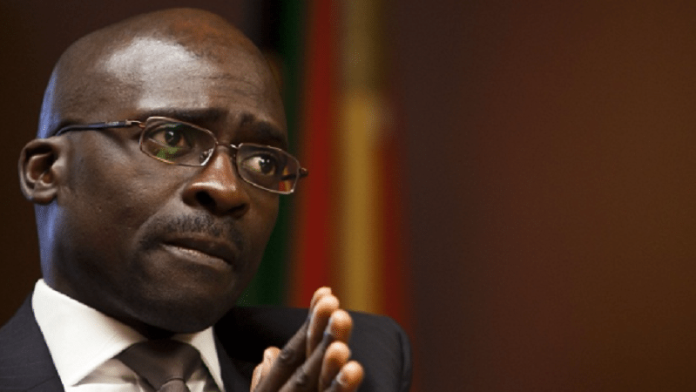
SOUTH Africa’s Chamber of Mines opened the door for negotiations with Finance Minister, Malusi Gigaba, saying that a stable and predictable business environment would help the mining sector realise the investor confidence deemed crucial in his medium-term budget policy statement (MTBPS) in Parliament today.
In July, the Chamber said it would welcome further talks with Gigaba regarding his then recently launched 14-point plan which aimed to revive the economy. The Chamber said at the time that certain aspects regarding the mining sector had been ignored.
“It was agreed with the Minister that further engagement is necessary as a struggling mining sector has a material dampening effect on the whole economy, including the ability of the Treasury to collect tax revenue,” the chamber said at the time of the plan’s launch.
Gigaba’s MTBPS today, effectively a half-way point ahead of the full budget in February 2018, painted a country in more economic distress than expected. GDP growth would average about 1.7% in the medium term whilst the revenue shortfall for 2017/18 is R50bn due to weak growth and tax collection compared to forecasts of R30bn. Another key metric – gross national debt – will climb to 60% in 2020/21, Gigaba said.
The Chamber said today the MTBPS was “… short on the structural reforms necessary to significantly boost confidence and therefore investment and growth in the economy”. The restoration of ethical leadership in the Department of Mineral Resources (DMR) would help restore this, it added.
“This includes the development of a proper vision for the South African mining sector that promotes real competitiveness and meaningful transformation in the sector, which in turn includes the development of a practical, workable and realistic mining charter that all stakeholders support and a competitive MPRDA Amendment Bill,” it said.
“The Chamber is of the view that, given the bad faith engagement by the DMR, the conditions for achieving such a country positive outcome are not currently in place. It is for this reason that the Chamber will continue to focus on court proceedings to drive practical and realistic outcomes that are in the national interest.
“Nevertheless, the Chamber leadership is open to engaging Minister Gigaba and Treasury on a country vision for the mining sector, which can help realise the true investment and transformational potential of mining for the benefit of all South Africans,” it said.
The High Court will sit in November to rule on the so-called “once empowered, always-empowered” principle which is a bone of contention between the DMR and the Chamber in respect of the Mining Charter before it was redrafted this year. Then, on December 13 and 14, the High Court will deliberate on the redrafted Mining Charter published on June 15.
Earlier this week, three groups representing more than 150 mining activists and community-based organisations joined the High Court review against the redrafted Mining Charter. The Centre for Applied Legal Studies (CALS) announced it would launch an application to intervene in the case brought by the Chamber of Mines against the DMR.
The application is on behalf of Mining Affected Communities United in Action (MACUA)‚ Women Affected by Mining United in Action (WAMUA) and the Mining and Environmental Justice Network of South Africa (MEJCON-SA).
According to a statement released by CALS‚ these groups represent more than 150 activists and community-based organisations working in mining in the country. “The mining industry in South Africa is built on a legacy of inequality and exploitation. The Mining Charter is one of the most important mechanisms we have for addressing this legacy and promoting much-needed transformation in the sector‚” CALS said.










